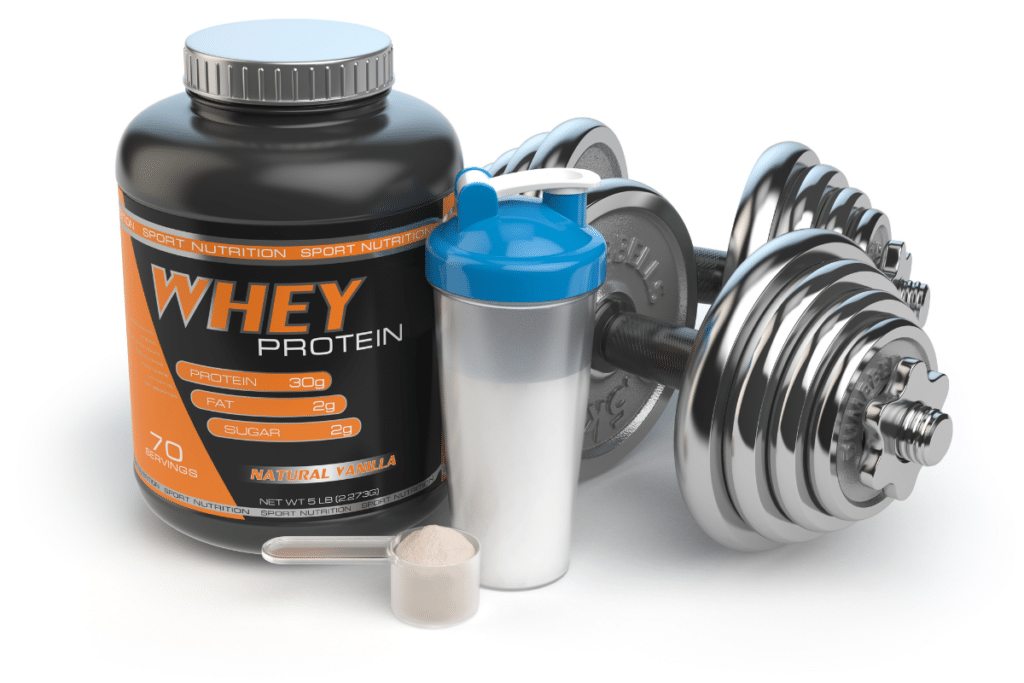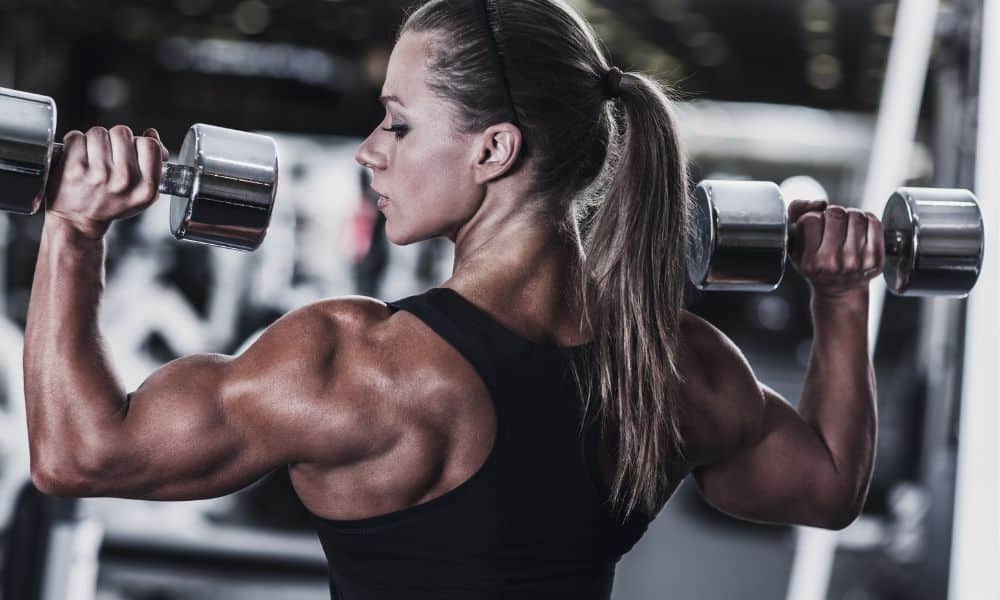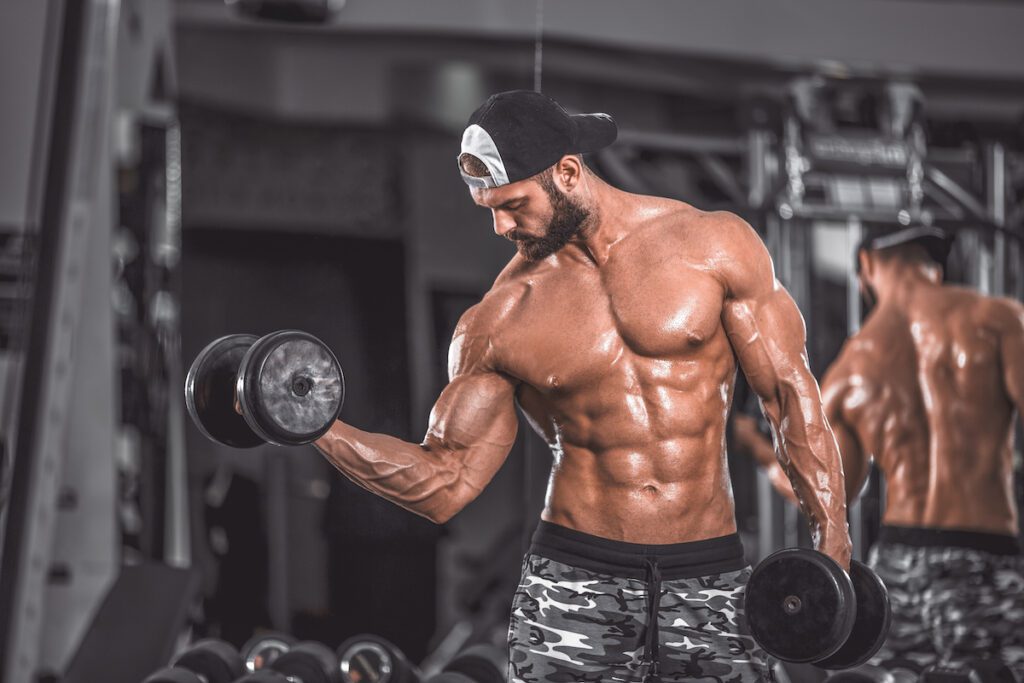The bodybuilding world is fraught with opinions and seemingly countless people telling you which supplements are worth your time and which to leave in the dust.
The problem? Opinions aren’t factual. In reality, only five bodybuilding supplements are really worth your time — protein powder, creatine monohydrate, EAAs, BCAAs, and multivitamins.
To ensure you successfully navigate this often impossible topic with ease, we’re going through everything you need to know right here.
Muscle Growth and Nutrition Go Hand-in-Hand.
Before jumping straight into the supplement talk, however, we wanted to take a moment to explain why they’re necessary. Essentially, gaining and maintaining muscle mass is impossible without the proper nutrients.
Your body needs healthy food to fuel your workouts and support its ability to grow and repair muscle tissue, as a board-certified physician, Nicholas Anastasio, M.D., can attest to.
However, bodybuilders require more than the average person to achieve the physique of their dreams. Thus, supplements let them meet their nutrition goals while keeping their body on track aesthetically.
The 5 Bodybuilding Supplements That Actually Work
With that in mind, let’s take a look at the five bodybuilding supplements that actually work. We’ll start with the most obvious — protein powder.
1. Protein Powder
When first entering the fitness realm, protein powder was probably one of the first supplements foisted upon you. And while it may have been overwhelming at the time, it’s a good thing you became acquainted with it as it really does work.
To gain muscle, you need to consume more protein than your body naturally breaks down. Of course, this is possible to achieve through protein-rich foods, but it’s a much easier feat with protein powder.
You can choose from a few different types of protein powder, including:
- Whey — It’s the liquid that separates from curds in milk during the cheesemaking procedure. It’s high in protein and contains lactose. It digests quickly and is rich in BCAAs (another supplement on our list), alongside boasting appetite-suppressing capabilities.
- Casein — It’s also found in milk but its absorbed much slower. Upon interacting with stomach acid, it forms a gel, slowing stomach emptying and delaying absorption. Thus, your muscles are gradually exposed to amino acids, reducing muscle protein breakdown rates.
- Egg — Typically made from egg whites, the protein quality is brilliant. Although, you won’t feel as full as you do when eating whole eggs because the yolk has been removed.
- Pea — Popular among vegetarians, vegans, and individuals with allergies, it’s created from yellow split peas. It’s rich in BCAAs and all nine essential amino acids, despite its low content of methionine.
- Hemp — It’s another plant-based option rich in omega-3 fatty acids and a few other amino acids. That said, it isn’t as a complete protein due to its lowered contents of lysine and leucine.
- Brown rice — While protein powders made from brown rice have been around for a while, they aren’t as well-loved as whey powders. Even though they contain all essential amino acids, the contents of lysine are too low to be deemed a complete protein.
Aside from the particular type, you need to decide on the percentage of protein you want per scoop. Generally speaking, you want a powder as pure as possible, but such variants will be more expensive. The above powders come in three distinct dilutions:
- Concentrates — These powders are made by extracting protein from foods using enzymes or heat. They’re usually 60% to 80% protein, with the leftover percentages dedicated to carbs and fat.
- Isolates — Made using an extra filtering procedure, isolates feature less fat and carbs. As such, they contain between 90% and 95% protein.
- Hydrolysates — Produced by an additional acid or enzyme heating that breaks the bonds between the amino acids, they’re absorbed quicker by your body and muscles.
2. Creatine Monohydrate
Another bodybuilding supplement that certainly works is creatine monohydrate. In fact, it’s the most extensively studied supplement in the health and fitness world at the moment.
Creatine naturally occurs in muscle tissue and is made by your liver, kidneys, and pancreas. You can consider it an energy reserve your body uses when it could do with a boost. Taking it as a supplement improves your natural reserves, and as a result, you can work at your maximum load for longer in the gym. Ultimately, this translates to a better physique.
From cell signaling to boosting performance to cellular hydration to muscle growth to cognitive function, creatine is the bodybuilding supplement. But it’s worth noting that it’s only effective when combined with a proper training and nutrition regime — the same can be said for all the supplements we’re discussing!
Creatine monohydrate is the most studied version, but there are other types to explore, such as creatine ethyl ester, buffered creatine, and creatine hydrochloride. However, we’d only recommend monohydrate as you can better rely on its effects.
3. Essential Amino Acids (EAAs)
Amino acids, as you may or may not know, are the building blocks of protein. Upon eating protein, your body breaks it down into amino acids, which it then uses to repair and expand muscle tissue.
In total, there are 22 amino acids. However, only nine are deemed essential since the body can’t make them itself. Thus, essential amino acids (i.e., EAAs) need to be obtained through foods like chicken, dairy, beef, eggs, and, of course, supplements.
According to the International Society of Sports Nutrition, you should consume six to 12 grams of EAAs before or after resistance training to stimulate muscle protein synthesis. However, a higher dose (around ten to 12 grams) may be more effective.
Generally speaking, you can find EAA supplements in capsules or flavored powders. If you already have a go-to supplement store, they’ll undoubtably be in there.
4. Branched-Chain Amino Acids (BCAAs)
BCAAs consist of three amino acids — isoleucine, valine, and leucine. They are all found in protein sources, particularly those from animals, but are easier to consume effective amounts when condensed in a supplement.
Branched-chain amino acids are crucial for muscle growth, making up roughly 35% of amino acids found in muscles. Some research suggests BCAAs may improve muscle gain and reduce muscle loss, particularly in those who aren’t getting enough protein in their diet at the moment.
5. Multivitamin
Last but not least, multivitamins are an important bodybuilding supplement to maintain proper functioning, ensure optimal energy levels, and promote overall health. After all, having a beautiful physique means very little without exemplary functioning of your internal organs!
Ideally, you should aim for one high in Vitamins A, D, B6, B12, and C, calcium, zinc, chromium, and magnesium.




